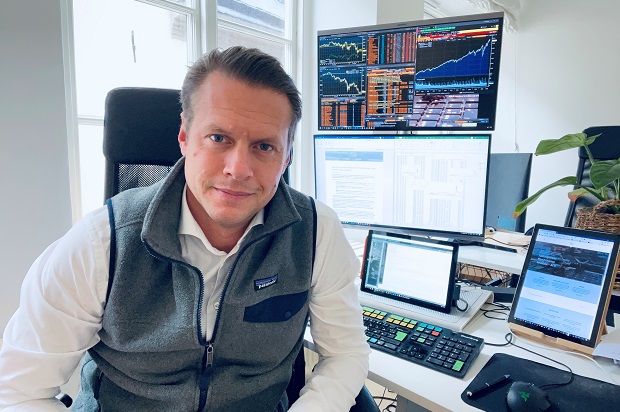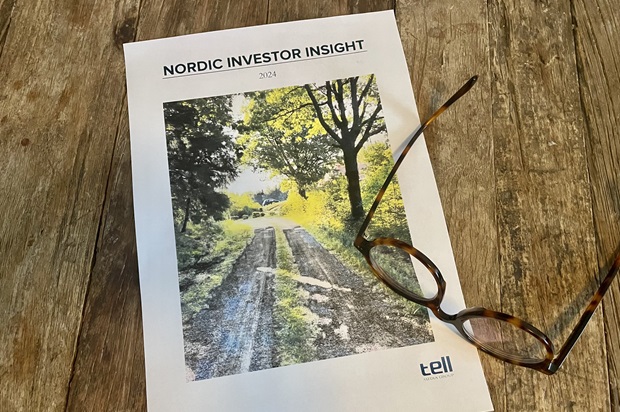
Paris-alignment of banks – dealbreaker for business relationships?
As money talks, investors may want to direct their business relationships away from the banks that earn the greatest amounts of profits from activities contributing to climate change.
Many institutional investors are engaging with banks on climate action in their role as shareholders. However, denying business to the worst climate culprits may be an even more efficient tool. Ulf Erlandsson, CEO of the Anthropocene Fixed Income Institute, suggests that using a climate lens to differentiate between banks as business partners can be a powerful yet under-utilised way to put pressure on improved Paris agreement alignment. Basically, an investor could apply a worst-in-class approach and decide not to do business with banks that receive the biggest share of their profits from activities that contribute to climate change.
Ulf Erlandsson points to some fundamental reasons why investors should care about the whole value chain, including its business relationships. “If a pension fund believes it’s in the interest of its members that the world reaches the targets within the Paris agreement, should you then involve counterparties that actively fight against the Paris agreement or primarily those that support it?” he asks. He adds that investors are already distinguishing between counterparties within other areas. “An investor might, for example, not do as much business with a bank counterparty with links to money laundering because that’s not something the investor wants to be involved in. In the same way, an investor might not want to be as involved with a bank that effectively is contributing to a 3-degree world, because that would hurt the interests of its stakeholders,” Ulf Erlandsson says.
The Anthropocene Fixed Income Institute was founded in 2020 with the backing of the Growald Climate Fund, which is part of the Rockefeller family. The institute, which has offices in Stockholm and London, conducts research around positive climate impact in fixed income markets. One of its recent initiatives has been to start mapping out banks’ relative fee generation from fossil debt capital market transactions, which so far has been a relatively uncharted territory. Ulf Erlandsson notes that while many banks have made climate commitments for their balance sheets, few commitments have been made with regards to the fee business.
“In the world of banking, the fee-generating business is actually preferred to lending due to the long-term balance sheet risks associated with loans,” he comments. The Nordic banks generally come out pretty well in the research but Ulf Erlandsson suggests that investors should analyse them from a relative perspective. “Japanese banks come out relatively poorly but instead of not making any deals with Japanese banks, one might rather avoid the worst Japanese bank and give the business to one with a better ranking,” he says.
According to research by the Anthropocene Fixed Income Institute, Société Générale is worst-in-class in Europe from a fossil fee perspective, RBC in North America, DNB in the Nordics and JPMorgan among global banks. The full research, including tables and data, can be found on its website.
Ulf Erlandsson believes applying this methodology should appeal to institutional investors for a number of reasons. “Counterparties being selected based on whether they’re aligned with the climate strategy is a good story to include in the annual report. And it’s a pretty cheap measure to implement. If you’re smart about it, it’s not something that has to cost much – or anything for that matter. So you get a lot of impact for the money,” he says.
It could also be a way to counter the anti-ESG movement that is mobilising across the Atlantic. “When the Texas comptroller says they won’t do business with banks unless they finance fossil fuel, they do the same but are coming from the opposite side. That action is obviously having an impact on the banks and then the greener side also needs to show that it means business,” he says.
The Finnish pension company Varma is one Nordic investor that has embraced this thinking. In Varma’s recently updated climate policy, which sets the course for the coming years, the pension company writes: “We regularly review the climate actions of our investments’ value chain and we do not, for example, use counterparties for which fossil fuel companies form a significant part of their generated fees from clients.” Asked about the reasons behind starting to scrutinise the climate action of its counterparties, Hanna Kaskela, director for responsible investment and sustainability at Varma, comments: “We cannot be sustainable if our value chain isn’t also sustainable.” She adds that the implementation is still work in progress but will be based on the Anthropocene Fixed Income Institute’s framework, which is outlined in one of its research papers.
Selecting trading partners based on climate alignment does not, however, appear to be a widespread practice among Nordic institutional investors – not even among some of the early movers when it comes to addressing climate change. The Danish pension company PKA has not got any policy around its counterparties’ climate action and neither has the Swedish government pension fund AP2. AP2 does, however, expect this to change as banks and financial institutes start reporting on Scope 3 emissions, the indirect value chain emissions. The pension fund says that this should make it easier to get a clearer picture of the banks’ exposures to fossil fuel and make comparisons between different players. This information could then be used as input for business relationships.
A potential counterargument from investors could otherwise be that their fiduciary duty requires them to select counterparties solely based on price. Ulf Erlandsson believes, however, that the cost impact should be minimal if an investor focuses on deselecting the worst. “If a pension fund has 20 counterparties, it makes very little difference to get rid of the worst,” he says. “And one shouldn’t forget that it’s also a fiduciary duty to conduct business with a long-term outlook. That’s why measures such as ‘in the box’ are used – to temporarily remove a bank from the counterparty list in situations when the client has been treated badly by the bank. You might lose out on some good trades with that bank over a few months but it may make them behave better and more consistently towards you over time. Sometimes you have to take a bit of short-term pain in order to get long-term alignment between the investor and the bank.”



